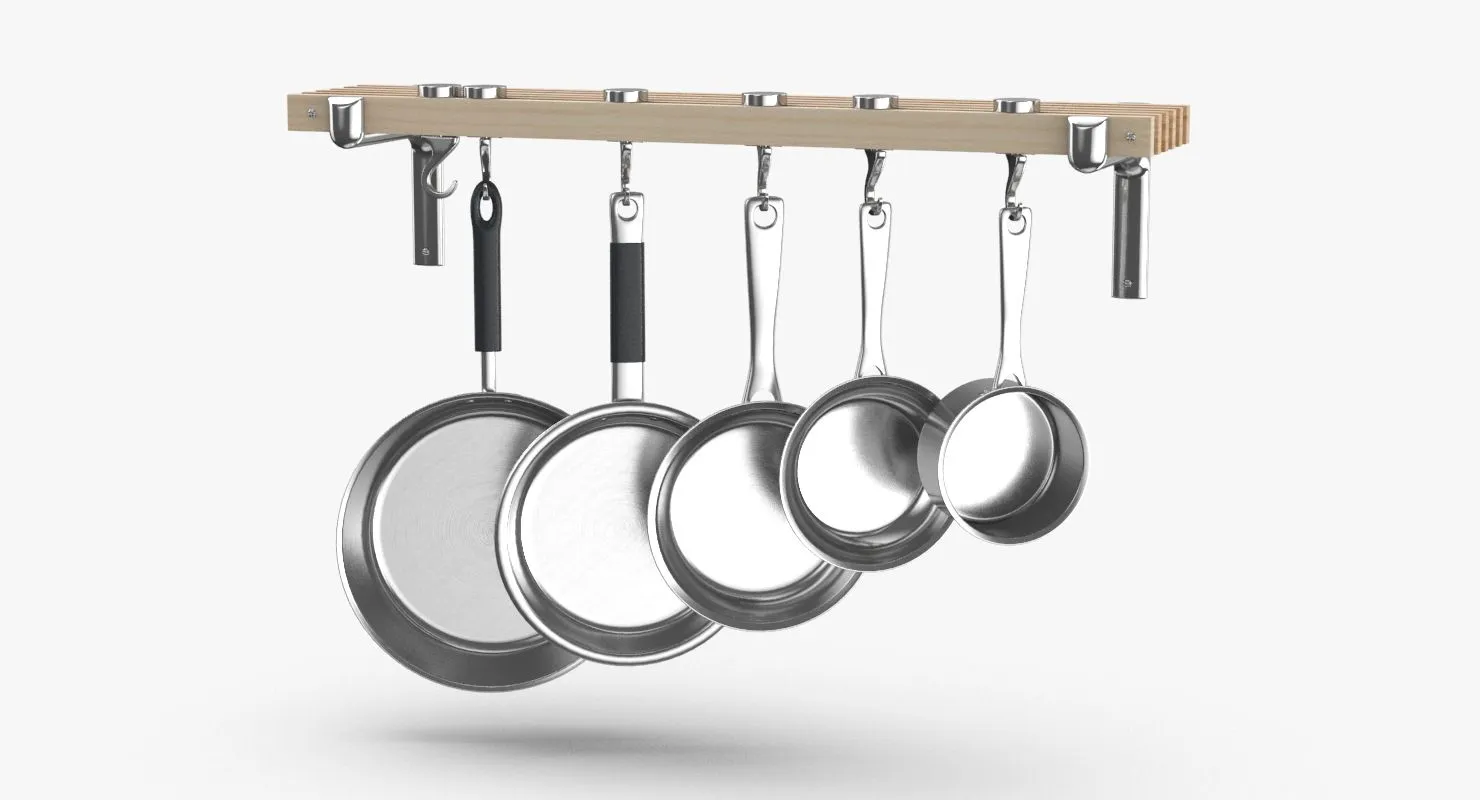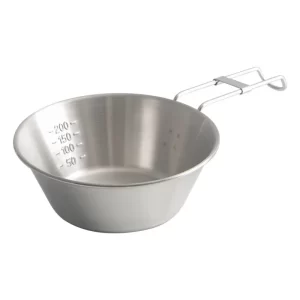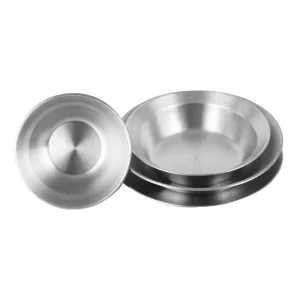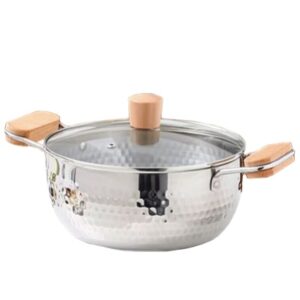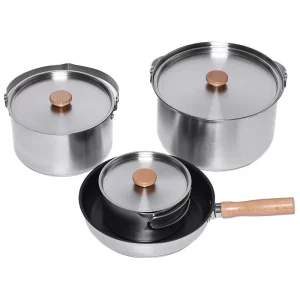In cooking, the choice of the material of cookware will have much to do with the taste of your food and efficiency in its preparation. Among them, two are the most common: ceramic vs stainless steel. Each of these has its merits and demerits and comes for particular uses.
As a stainless steel cookware manufacturer, Chancescook will provide you with a comprehensive comparison between ceramic cookware and ustensiles de cuisine en acier inoxydable in multiple dimensions to help you make an informed choice.
Table des matières
ToggleWhat is ustensiles de cuisine en acier inoxydable?
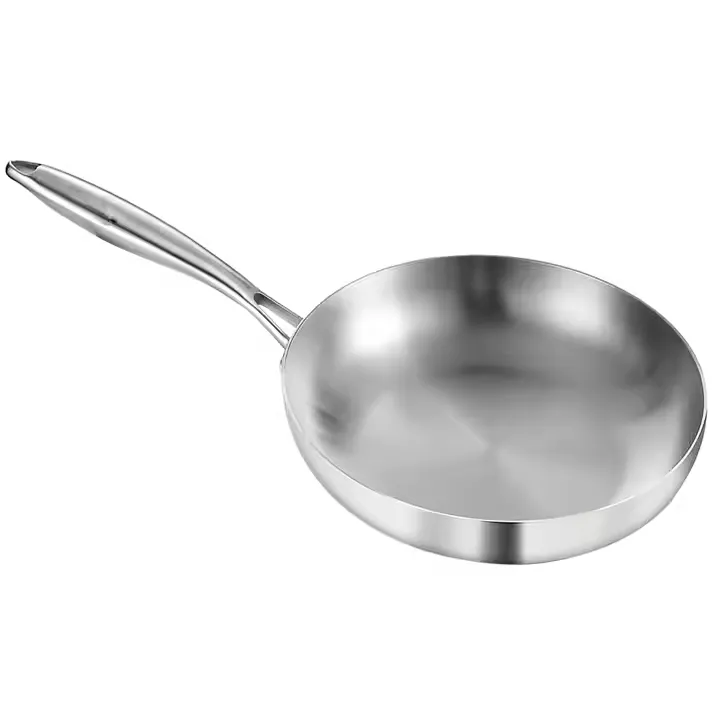
The main material for stainless steel cookware is 18/10 stainless steel, containing 18% chromium and 10% nickel, or other food-grade stainless steel material with corrosion and rust resistance. High-quality stainless steel cookware usually possesses a three- or five-layer structure, that is, an outer layer of stainless steel and an intermediate layer of aluminum or copper, in the pursuit of better thermal conductivity and even heat distribution.
What is Ceramic Cookware?
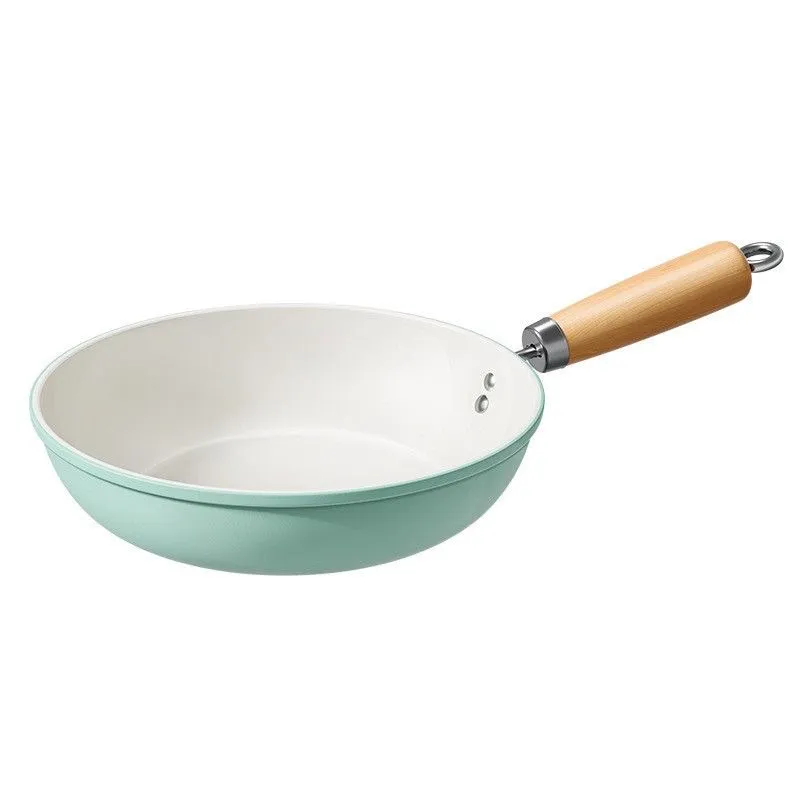
It will be made from natural mineral materials with a ceramic coating without chemical components like PTFE and PFOA for health and environmental protection. Some ceramic cookware may contain an aluminum or steel core inside them, which enables more thermal conduction without losing much structural strength.
Pros and Cons of Ceramic and Stainless Steel
Health and Safety
Ceramic cookware is produced from inorganic materials; hence, it does not contain any harmful metals. In cases of people who suffer from metal allergies, or if one is concerned with heavy metals leaching, then ceramic cookware can be a good choice.
The cookware made of stainless steel resists corrosion and high temperatures. However, it may contain traces of metal elements, and its aftercare is a must for longer use in cooking acidic foods.
Durability and Maintenance
Ceramic cookware is very fragile and it can disintegrate. It should be used very carefully but the surface is not sticky so it cleans up easily.
Stainless steel cookware is sturdy and resistant to wear and tear, easy to clean, and lightweight for ease of use.
Heat Conduction and Cooking Efficiency
The ceramic cookware has slow heat conduction but can withstand high temperatures, which makes it suitable for several different cooking methods. It has good insulation properties.
Stainless steel cookware conducts heat quickly and evenly, suitable for fast-paced cooking, with poor insulation performance.
Aesthetics and Decoration
The color patterns of ceramic cookware are decorative, and suitable for consumers who are in pursuit of aesthetics.
Stainless steel cookware, due to its simple and modern design, can fit into various kitchen environments; however, when it comes to options related to colors and patterns, limited choices are available.
Price and Cost-effectiveness
Ceramic cookware is produced through a rather complex process; hence, it is sold at a higher price. However, considering durability, health, and safety, it tends to be more cost-effective.
The other daily material is stainless steel cookware, which is relatively friendly in price and suitable for families who emphasize economy and durability.
Usage Scenario and Demand
Ceramic Cookware: It applies to people who need to keep warm for a long time and pursue health and a non-stick effect. In addition, various designs and aesthetic feelings of ceramic cookware also make it the first choice for consumers pursuing kitchen aesthetics and personalization.
ustensiles de cuisine en acier inoxydable: Stainless steel cookware can be used as frequently as possible, requires rapid heating, and assurances of durability at the scene. The good heat conductivity and ease of cleaning make it ideal for fast-paced cooking environments and home kitchens.
Overview and Recommendation
- Health-wise: Ceramic would be the better option in case of allergic reactions from metal or great concerns about heavy metal leaching.
- Use: In the instance when you intend to use the cookware frequently and you would want to speed up the healing process, then stainless steel would be a better alternative, considering it is a good conductor of heat.
- Aesthetics: Ceramic cookware has decorative designs, so therefore it would be perfect for those kinds of people who value style.
- Heat Preservation: Ceramic retains more heat and could help maintain the warmness of the food.
- Price: Generally speaking, stainless steel is cheaper, and the price of ceramic is higher. It is more durable but safer for your health.
Final Thoughts
Being a wholesale stainless steel cookware manufacturer, we understand the worth of stainless steel when it comes to cooking. Both ceramic and stainless steel cookware have their positives and negatives. Which one will work best for you depends upon your style of cooking, health issues, aesthetics, and, of course, budget. Ceramics delivers some healthy advantages, along with non-stick performance and aesthetic appeal. On the other hand, stainless steel is durable, budget-friendly, and has better heat conduction properties. Choose wisely and put together a kitchen that meets all your needs.

